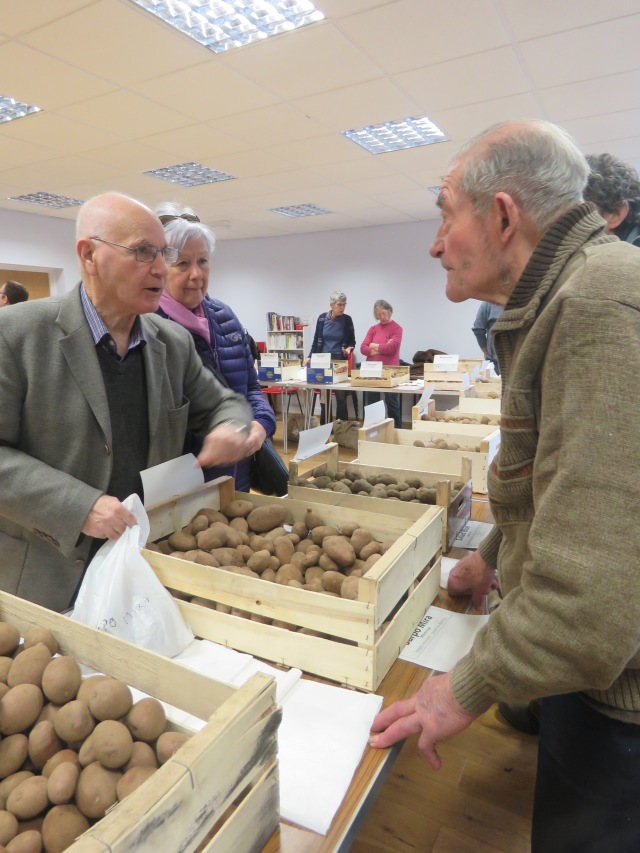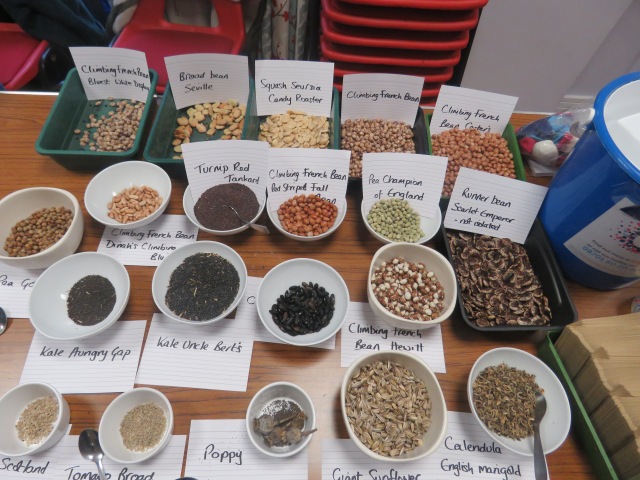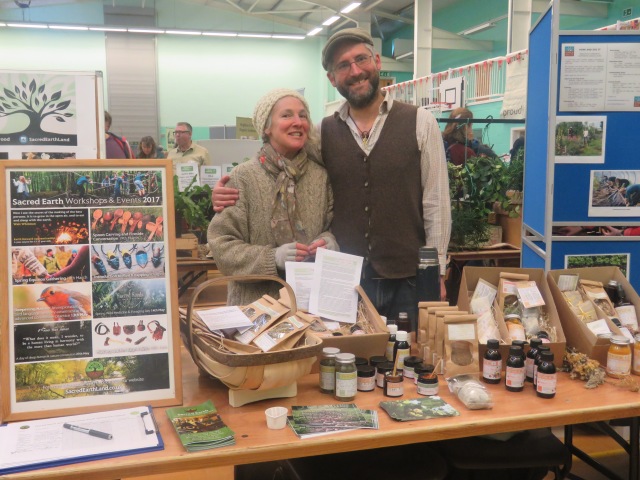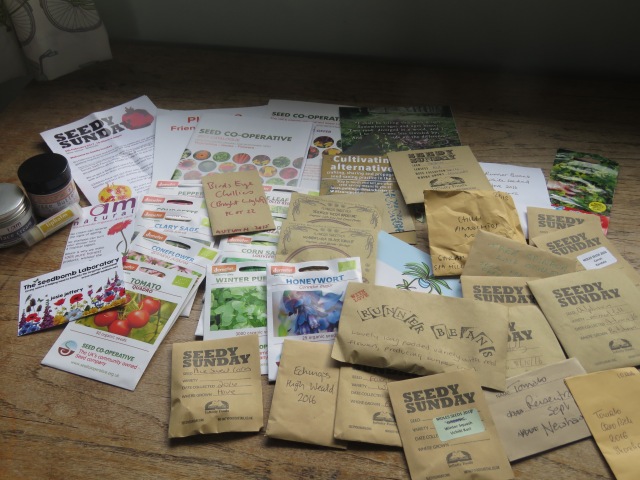Wow what a busy weekend – and no time for gardening!
Saturday was Heart of England Organic Group‘s annual potato day – always on the first Saturday of February if you want to put it in your diary for evermore.

The group buy in 25kg sacks of organic seed potatoes and sell them on individually – so you can buy just as many seed tubers as you need, or a few of lots of different varieties. It helps fund the group for the year ahead, but also provides a valued service to local gardeners and allotmenteers.

The year, 2017, was our second potato day. Last year we had lots of people queuing outside before we opened at 10am. This year was a slower start, but on asking folk, it seems that many people last had assumed that because of our proximity to Garden Organic at Ryton, our potato day would be as manic as theirs used to be. This year, they realised that HEOG were running a more relaxed affair and felt less pressure to be on time. By the end of the day, we had sold just 10% fewer spuds than last year, so more than covered costs.

Potato Day 2017 featured a seed swap table for the first time. However, this side of the event wasn’t really publicised and actually, no-one brought any seed to swap. But this didn’t matter because I had asked Heritage Seed Library and The Organic Gardening Catalogue for donations and they both responded generously. As we were effectively giving seed away, we asked for donations to Cancer Research UK and raised £160 for this cause. Next year we need to push the ‘swap’ side of things more and get the HEOG membership engaged with saving seed and handing over all those free packets from magazines.
We also spoke to lots of interesting people and gave advice to beginners and more experienced gardeners. And had a lovely time.
Then on Sunday, I headed to Brighton and Seedy Sunday to see how it should be done. The seed swap is actually a rather small part of this large event. One hall was set aside for this purpose and the seeds organised into types – tomatoes, peppers and chillies, brassicas and so on. It was more formalised than HEOG’s little table – I guess it needs to be because of the amount of people attending. So you wondered round the large central tables picking up seeds you wanted, then at the end, either handed in an equal amount of your seed packets, or paid 50p per packet. They only accepted self-saved seed, so no commercial packets. And no seeds from the Cucurbitaceae family (pumpkins, squash, courgettes and marrows) because of the high risk of outbreeding.

In a courtyard was a rather splendid display of making cloth from plant fibres – linen and nettles. I spent ages here indulging my love of all things textile. I chatted for ages to a very patient man about how to make cloth from nettles. I knew it was possible but had no idea of the process. He said that when he decided to try it, he realised that’s there’s very little documentation about how to do it, so he set out to work it out. 2 years later and he can make yarn which can be knitted or woven. However it is massively labour intensive and it is quite obvious why it was passed over for the easier to process flax into linen. And wool is even easier still.
The largest part of the event was the marketplace. If you read my review of the Edible Garden Show you’ll remember that I was disappointed in the range of stuff on offer and decided I wouldn’t be going back (it’s now been cancelled anyway). Well, this marketplace was the exact opposite – almost every stall was offering something relevant to me. Well, not quite every stall – I won’t be joining Sussex Wildlife Trust or volunteering on a community allotment in Brighton, for example.

There were lots of seeds for sale – organic and non-organic. Also some plants, but I didn’t look too closely at them because I was travelling by train. A few herbalists with lovely cosmetics and remedies, and some sellers of wildlife homes. Mostly I bought seed, but I did succumb to the herbalists wares too.

One especially interesting stall was the Seed Cooperative – a new venture based in Lincolnshire with the intent of producing more UK grown seed for the organic market, both by growing it themselves, and providing a market for any other small-scale producers. They are selling shares in the Cooperative with a minimum investment of £100, and a maximum of £100,000. I intend to sign up to support this much-needed business – most organic seed available to gardeners is not grown in the UK. However, you don’t need to invest in order to purchase seed from them.
The final part of the show was an area for talks and there were several throughout the day. However, I was busy browsing the stalls and elected to miss most of them.
Next weekend there’s another seed swap event in Northampton – Seedy Saturday – which I also intend to go to. I think this will be smaller than the Brighton event, although they have some high-profile speakers lined up. I can’t see our small seed table at HEOG growing into an event of this size, but it’s interesting to check out how bigger events are run.








